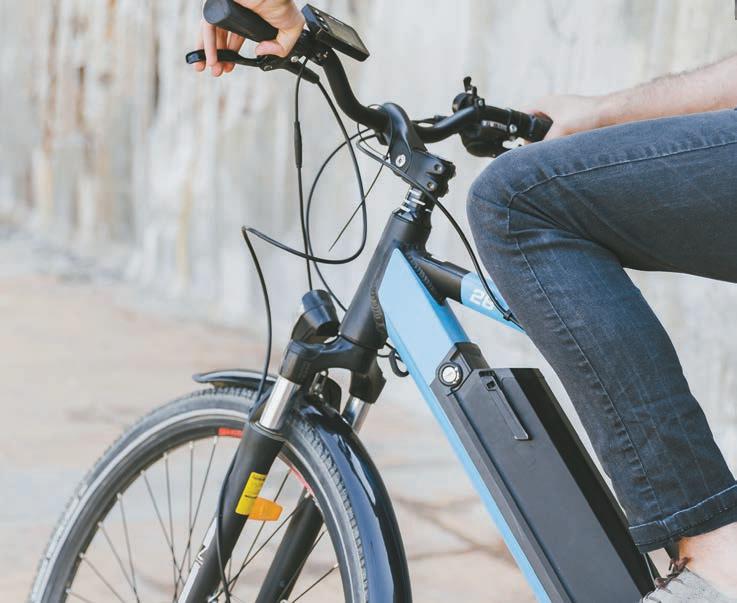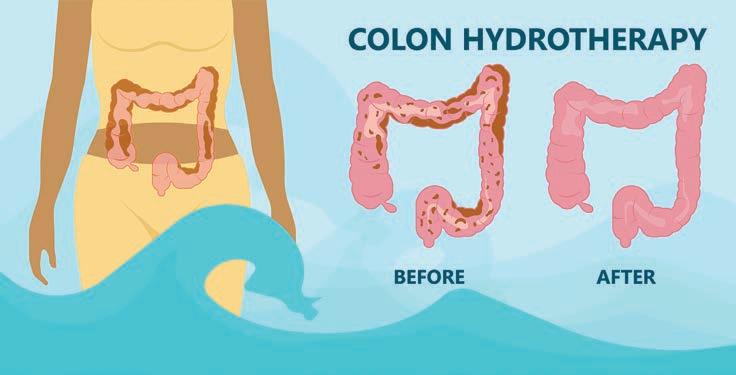
8 minute read
healthy kids
Getting Pregnant
Lifestyle Strategies to Boost Fertility
Advertisement
by Ronica O’Hara
More than 7 million American women face one of life’s deepest
heartbreaks: They want a newborn in their arms, but their bodies are not cooperating. Happily, the growing use of natural approaches like healthier diets, supplements and acupuncture is changing that outcome for many. When Rebecca Fett was told at age 26 that she had “incredibly low odds” of being able to conceive with her own eggs, she used her biochemistry and genetics training to plunge into research on egg quality and fertility. By taking targeted supplements, upgrading her diet and detoxing her house of harmful chemicals, the result was not only two healthy baby boys, but a book entitled It Starts with the Egg: How the Science of Egg Quality Can Help You Get Pregnant Naturally, Prevent Miscarriage, and Improve Your Odds in IV.
It sells at the fast clip of about 600 copies a week, showing that even amidst the traumas of the pandemic, couples fervently want to bear children. Some doula groups on the East Coast report a 30 percent rise in early 2021 births, and sperm banks are running so low that sperm from a handsome new donor posted online can be bought out within hours, reports The New York Times. “There is nothing more hopeful than the creation of a new life,” says Randine Lewis, who used acupuncture and Chinese herbs to enable a hard-won pregnancy and then wrote The Infertility Cure: The Ancient Chinese Wellness Program for Getting Pregnant and Having Healthy Babies.
EGG MATTERS
A healthy pregnancy depends on a healthy egg. Chromosomal abnormalities severely hamper fertilization and account for more than half of first-trimester miscarriages. Yet, contrary to common belief, egg quality is not determined solely by a woman’s age: it can be highly influenced by her lifestyle choices and nutrients in the three-month window before an egg is fertilized, Fett advises. Based on the latest research, she offers the following recommendations for women trying to conceive naturally or through such means as in vitro fertilization (IVF): Detox the diet. To manage critically important blood sugar and insulin levels, eat low-glycemic, nutrient-rich foods and avoid sugar, caffeine and alcohol. An organic, largely plant- and fish-based Mediterranean diet boosts fertility. Dutch researchers found that women following this diet before an IVF cycle had a 40 percent higher chance of becoming pregnant. Supplement correctly. Take a prenatal vitamin, vitamins C and E, ubiquinol and melatonin. For women with diagnosed low ovarian reserve, consider carefully dosed DHEA. Detox the house. The Bisphenol A (BPA) in many household items and the phthalates in most scented products are endocrine disrupters that increase the risk of infertility and miscarriages, numerous studies show. Exchange plastic storage containers and water bottles for glass or stainless steel ones. Steer clear of fast food and processed food. Buy milk, oil, drinks and condiments in glass bottles rather than plastic ones. In the bathroom, toss hairspray, perfume and nail polish, and

be wary of scented skin care products, air fresheners and detergents. Use non-toxic cleaning products.
AN EASTERN PERSPECTIVE
Taking a different tack, “Traditional Chinese Medicine (TCM) does not focus on forcing maximum egg production,” says Lewis. “We improve the quality and receptivity of the entire body, mind and spirit, and the reproductive physiology responds.”
TCM involves identifying imbalances in the body that are creating obstacles to pregnancy and then using acupuncture, herbs and diet to restore full health. Diagnosis is typically done by an acupuncturist or Chinese medicine doctor. (To find one locally, Lewis suggests asking pointedly, “How many cases of infertility have you been successful in resolving?”)
According to Lewis, self-diagnosis can also work. For example, sore breasts and irritability during ovulation can signify liver qi stagnation, and can be relieved by massaging certain acupressure points, taking black cohosh and meditating or doing yoga. General TCM strategies include: Acupuncture: Regular treatments “can stimulate the body’s hormonal system to do what it is supposed to: secrete the right hormones at the right time in a woman’s cycle,” says Lewis. Self-administered acupressure also works. Diet: Choose organic foods and hormonefree meats, and eat veggies cooked rather than raw. Nix caffeine, nicotine and alcohol. Supplements: Besides a high-potency, multivitamin-mineral complex, such nutrients as bee pollen, blue-green algae, wheatgrass, vitamin B6, CoQ10 and folic acid are often useful. Herbs: Specific herbal concoctions and powders can target imbalances and deficiencies at key points in the menstrual cycle. Stress-busters: Qigong breathing lowers stress, and nightly warm foot soaks increase blood flow to the pelvic organs.
“As we live more harmoniously, our fertility improves,” says Lewis. “It is vastly wise and responds to how we live, think, act and relate.”

Plug and Pedal
The Benefits of Using Electric Bikes
Gas-guzzlers are the worst of vehicles, emitting harmful pollutants and using up non-renewable natural resources. An Earth-friendlier alternative for work commutes or pleasurable neighborhood spins is the e-bike, powered by pedaling and an electric motor. Reaching maximum speeds of 20 to 28 miles per hour and costing $400 and up, an electric bicycle offers a more scenic and easier ride that gets us to our destinations without trashing the planet.
ENVIRONMENTAL BENEFITS
Zero emissions. Electric bikes run on clean energy, eliminating the devastating carbon emissions associated with cars, vans, trucks and motorcycles. Long-lasting power. The batteries last for years—much longer than traditional types. They don’t contain lead and can be recycled. Easier on roads. Bikes are considerably lighter than larger vehicles and cause much less damage to infrastructure.
HEALTH-FRIENDLY COMMUTING
E-bikes are a great way to bring some physical activity to an otherwise sedentary lifestyle. In a 2018 study, Swiss researchers found that commuters enjoyed similar cardiorespiratory improvements regardless of whether they used an electric bicycle or a conventional, non-motorized model. With the power assist, e-bikers were able to cycle at higher speeds and climb hills more easily, which also proved to be highly motivating.
SAFETY TIPS
Pay attention to traffic. Many car drivers may not expect a biker to reach 20 or more miles per hour. Ride defensively. Be visible. Outfit the bike with lights and a bell and wear eye-catching clothing. Start slow. Get a feel for the bike’s capabilities at lower speeds before cranking it up. Give it a brake. With the added speed and power, slowing down well ahead of stop signs, lights and road crossings is a must. Be careful on the mount and dismount. An e-bike is about 20 pounds heavier than a regular bike, so a stepthrough frame might make good sense, even for men. Wear a helmet. According to the U.S. Centers for Disease Control and Prevention, head injury is the most common cause of death and serious disability in bicycle-related crashes.
The Truth About Poop
Constipation and Hydrotherapy
by Vanessa Galati-Drew

It’s been estimated that constipation affects more than 4 million people in the United States and accounts for roughly 2 million doctor visits a year, making it one of the most common gastrointestinal issues. “Almost everyone, at one time, has been constipated,” says Vanessa GalatiDrew, founder of Cleansing Concepts, a detoxification facility with a new location at the Galleria in Red Bank, New Jersey. Constipation is characterized by difficult or even painful bowel movements—fewer than three a week. Sufferers complain of hard or pellet-like stools, having to strain with bowel movements, and feeling bloated, uncomfortable and sluggish. While constipation is uncomfortable, it is often considered temporary and relatively harmless. However, if it is undiagnosed or left untreated, it can lead to other health issues, Galati-Drew says. She notes that constipation can cause various medical problems, including headaches, fatigue, moodiness and depression, hemorrhoids, anal fissures or tears, gas, lower back pain, skin problems, body odor, indigestion and abdominal pain, as well as the risk of increased toxicity, which affects overall wellness. “Accumulated toxins may be absorbed into the system and over time may stress the organs of elimination, which are the liver, kidneys, skin and large intestine,” she says. “The toxins move around and around in the lymph system and blood, slowly causing auto-intoxication, which then leads to disease.”
A NATURAL SOLUTION
While doctors typically prescribe laxatives, drugs or surgery for constipation, these treatments provide only temporary relief from symptoms and can have dangerous side effects, Galati-Drew says. “One of the safest and most effective treatments of chronic constipation is colon hydrotherapy, a safe and gentle flow of warm purified water into the large intestines without pressure,” she says. She describes the process as a “gentle internal bath” that facilitates the body’s natural detoxification process, waking up the digestive system to get it working properly. “Many people likely have years of impacted waste material in their colon,” she says. “Colon hydrotherapy gently detoxifies and cleanses the system by moving the accumulated waste out quickly, giving the body a chance to refocus on rejuvenating itself. It will help eliminate pounds of unwanted toxic fecal matter to restore overall health and vitality. By removing these toxic waste materials, the systems of your body, including the digestive and immune systems, are able to operate more effectively and efficiently.” Galati-Drew says colon hydrotherapy is an important part of the detoxification process because it allows toxins to exit the body rather than being reintroduced into the body through a backed-up colon. She recommends adopting a diet rich in fruits and vegetables after the detox program is completed, to keep things moving. “Colon cancer is the third most commonly diagnosed cancer and the second-leading cause of cancerrelated death in United States,” she says. “A healthy, clean colon is the first step to achieving your optimal level of health. You don’t have to live with chronic constipation.”
Vanessa Galati-Drew is the founder of Cleansing Concepts, located at 353 Lexington Ave., New York, NY (212-256-0032); and 825 East Gate Blvd., Garden City, NY (516-640-5322). Cleansing Concepts also has a new location at the Galleria in Red Bank, NJ. For more information, visit CleansingConceptsWorld.com. See ad, page 7.










